Slang or rubbish?
-

Emphasis has always been placed on these words for as long as Nigeria has existed, and it is blasphemous to do otherwise. Many Nigerians are guilty of this, especially nosey neighbours or that one annoying seat partner in primary school.
1. Borrow Borrow
This is the only way to address someone that is always borrowing people’s things, maybe Nigerians think that if they say it twice, it’ll stop the person from borrowing.
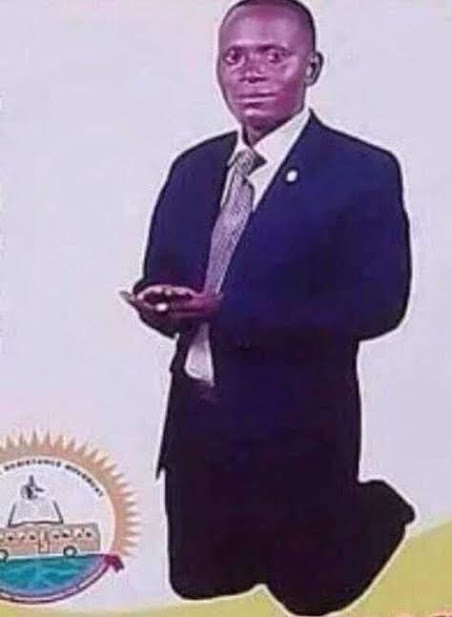
2. Cry cry
You will be deep in your feelings as a child, crying (sometimes unreasonably) and one yeye person will come and say, “Cry cry baby, you can cry oh.” Aunty Ngozi, no, are you mad?
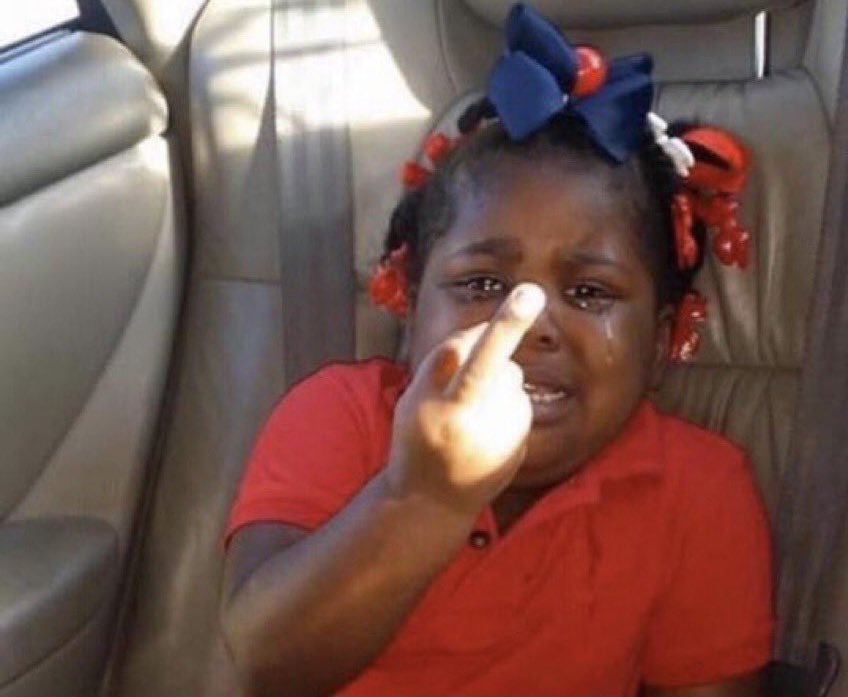
3. Fear fear
Nigerians are very good at shaming people for being afraid of anything that scares them. To be honest, the fear of being called this has probably made people do a lot of stupid things.
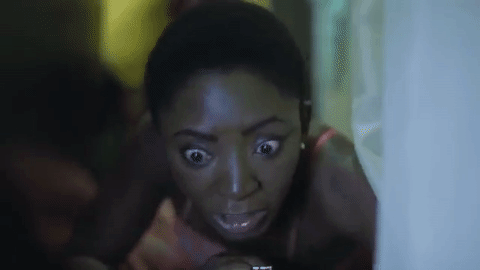
4. Looku Looku
This one usually follows with a slap or an insult of sorts. In fact, being called a looku looku is an insult.

5. Scatter scatter
This one is specially reserved by Nigerian mothers for their kids. She’ll enter your perfectly disorganised room where you can at least find all your things, unlike the glasses she is always looking for that is always on top of her head. Somehow, you’re the scattered one.

6. Follow follow
If someone calls you follow follow, it’s probably because you got into trouble after following someone to do something bad.
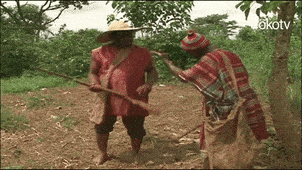
7. Bear bear
This one just doesn’t make sense because how do you get “bear bear” from “beards”? But if people don’t say “bear bear” for emphasis when referring to someone growing a beard, that means the beard is nothing to write home about.
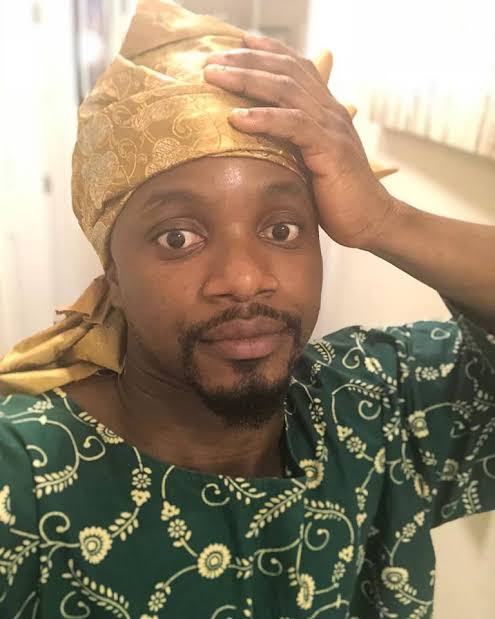
8. Corner corner
This basically means that someone has done you dirty, played you wayo, or taken you fi eediat.
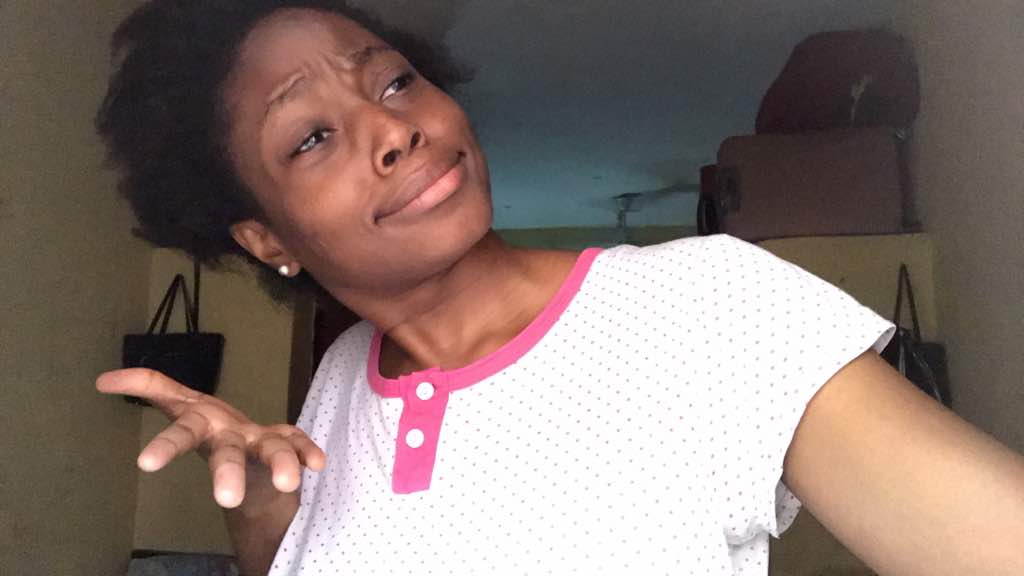
9. Lie lie
This one is complicated because it can mean so many things. If a market woman says “lie lie” in a high pitch, it means she is about to cheat you. If a child says it in a lower pitch, you are being called a liar and if two people are gossiping and one person says it, then they are simply expressing disbelief. Think about the power of emphasis, people.

10. Copy copy
This is when someone steals your intellectual property, style, girlfriend, slang e.t.c. The gag is to say it twice for emphasis so they can acknowledge how unoriginal they are.

-

How many Nigerian secondary school slangs do you know? And remember?
Take this quiz to find out:
Questions
This is a question
Select all the slangs you know:
-

If variety is the spice of life, then Nigeria is the kind of pepper soup dish that would have Toke claiming the sweat on her brow is ‘glow’.
Here’s the super-new episode of VRSUS by the way. #ShamelessPlug #NaWeDoAm
You know the basic facts – over 200 million people, 200 tribes and languages, 36 states, three major ethnic groups all live together in Nigeria. We’re in a melting pot if there ever was one. It’s little surprise that no single language, not even our lingua franca, English is spoken across the country.
But if you listen enough, one of the best things about being Nigerian is how we’ve injected common terms with new meaning and created a set of terms that only Nigerians understand.
People call them Nigerianisms. We may not have all of these codified into a dictionary but I will have you know that Nigerian English is the fastest growing variety of non-native English in the whole world.
That grammatically wrong term you’ve been using (insert the wrong term) could become more common than you realise; which poses a small, itsy-bitsy lirru problem.

I honestly believe Nigerians are funny from birth, and it shows in our Nigerianisms. But some of these terms have become so annoying that we don’t want to imagine a world where everyone speaks them too.
That said, in the global interest, these are the 7 most annoying Nigerian-isms. I hope we wake up tomorrow and forget them so we can avoid an eventual apocalypse where the only rational person is, you guessed it, your old English teacher.
- “SEE FINISH”
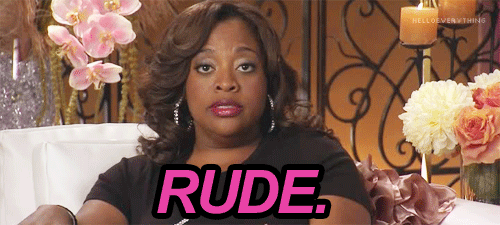
So the basis of this is simple. See finish is pretty much the lazy version of “familiarity breeds contempt“. The problem is you can’t say this thing without sounding like you’re about to start a fight; you say ‘the reason for this situation is see finish’ and someone takes it as an insult.
What kind of world are we creating where a simple phrase can get you on Instablog for fighting inside gutter? Nah
plis .- “COME AND BE GOING”
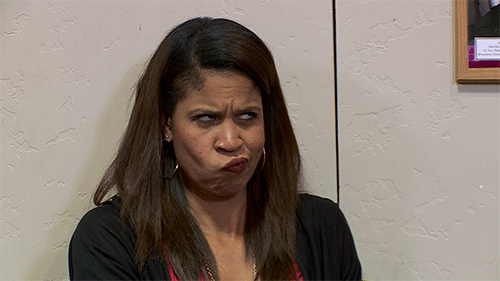
I want you to think deeply about what a person means when they say “This guy. Oya come and be going to your house“. Do you feel this slight sense of chaos swimming in your head? Do you feel the need to moonwalk in several directions at once? Imagine a non-Nigerian in the same shoes.
I have a theory. This particular Nigerianism was introduced to our lexicon by the spiritual agent of confusion – the same guy who tweets on behalf of Bashir Ahmad and made Cynthia Morgan change her name to something no-one (including her) can seem to remember.
- “MY DEAR”
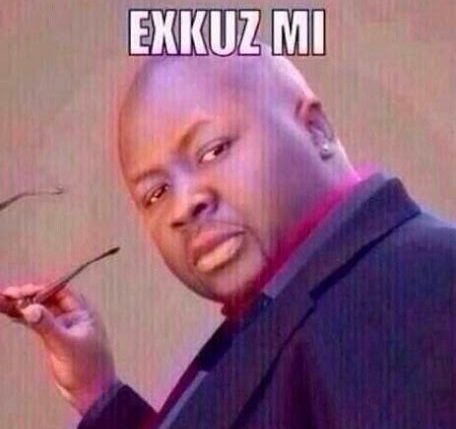
This is one of those many British slangs that found its way into Nigerian English. That’s not necessarily a bad thing except we’ve turned it into a condescending way of referring to people we don’t rate, or putting them in their supposed place.
How many times have you said something smart, only for the oldest person in the room to say “My dear, nothing works like that“. It’s also become a fave of creepy men who hang out near ATM stalls and mutter as a term of endearment to every girl or woman who passes by, “You look so cute, let me help you, my dear”. Ewww. Delete please.
“THEY”
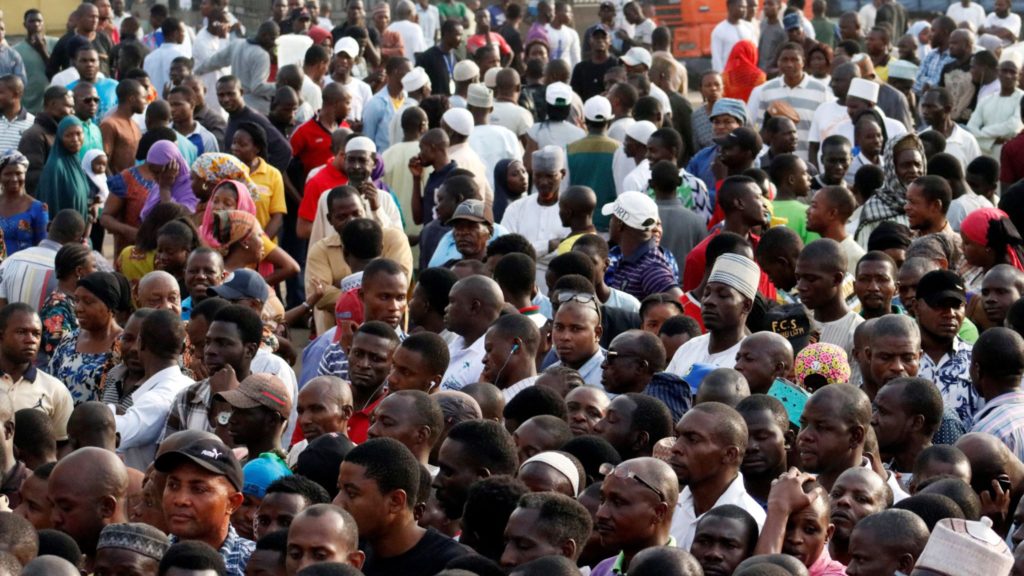
Nigerians use ‘they’ like a swiss army knife. We use it to refer to a random group of people as in “They said Buhari is actually Jibril from Sudan”. Sometimes, it refers to an imaginary hater e.g “They told me I wouldn’t make it; look at them!”.
“They” is the lethargic way Nigerians describe any and everybody including groups we are a part of e.g “
- “OPEN EYE”

You would assume everyone keeps their eyes open fairly often; I mean, it’s how we see, right? That is until a Nigerian tells you that someone has ‘open eye’ which is basically slang for “greed”.
My only problem is there’s no way to accuse a person of having open eye without sounding poor, frustrated and unfortunate.
- “TAKE IN”
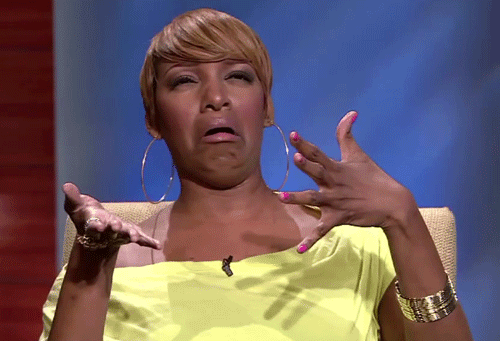
To the rest of the world, to ‘take in’ mostly means to understand or assimilate. But when you’re a Nigerian with women in your life, it means one of them is now pregnant. Now, apart from making it sound like women go to a government facility to ‘take babies in’, it just strips reproduction of all its beauty.
She doesn’t want to take in, dammit. She wants to be pregnant. Only Nigerians can make pregnancy sound like a football tactic.
- “UNCLE” & “AUNTY”
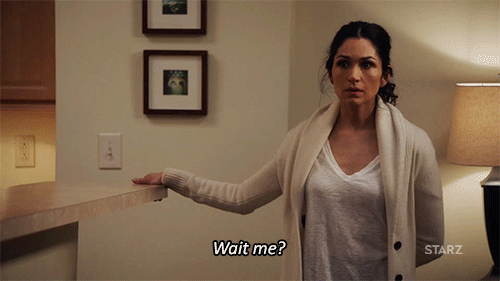
I get that the idea that we’re all related is super cool and all that. But thanks to Nigeria, odds are you’ve spent your entire life referring people you don’t know from Adam as “Uncle” or “Aunty”.
As you get older, you begin to notice that people call you the same thing as well. A random kid walks up to you and says “Uncle, help me carry my ball from that tree”. Yea, I love your zeal and all but I don’t really know your dad or mum like that.
That’s all folks. Let’s come together and save the world from eternal confusion. As with everything Nigerian, it begins with you. If she’s not ingesting entire morsels of fufu in quick succession, she’s not taken anything in. Thanks, my dears.
-
KAPAICHUMARIMARICHOPACO

If you know this phrase or have heard it before, you have one guy to thank – a rapper by the name Zlatan Ibile. He says it to announce himself on a song, to end verses, and pretty much anytime he wants, like on his hit single with Burna Boy, “Killin Dem”.
Thanks to Zlatan, this phrase is becoming so common that it’s now taken for slang.
For all we know, it’s also completely meaningless.
As early as March 2018, music magazine Vibe.ng tried to provide some clarity. In an interview, they asked Zlatan what “Kapaichumarimarichopaco” means.
Our man with the green hair dye responded, “It is a spiritual language and can mean whatever you want it to mean.”
Errm, that’s not really how it works, Zlatan.
Later in the year, Trace, the French music channel, decided to do it for the culture. But just when we thought he was about to answer one of humanity’s biggest questions, Zlatan’s responded: “It means CASA BLANCA DE KATAMA TOFIA”.
Hold my hands, my gee. Do you feel that slight vibration in your brain? Are your eyes suggesting they want to weep against your best efforts? That’s what intense confusion feels like.
We still don’t know what Zlatan’s favourite slang means. But that hasn’t stopped anyone from saying it, or my editor, Fu’ad, from plastering it on the walls of his new apartment and praying to a statue of Zlatan while performing his physically-challenged Zanku.
But let’s be honest, does anyone really care what it means? Or better still, do we really want to know?
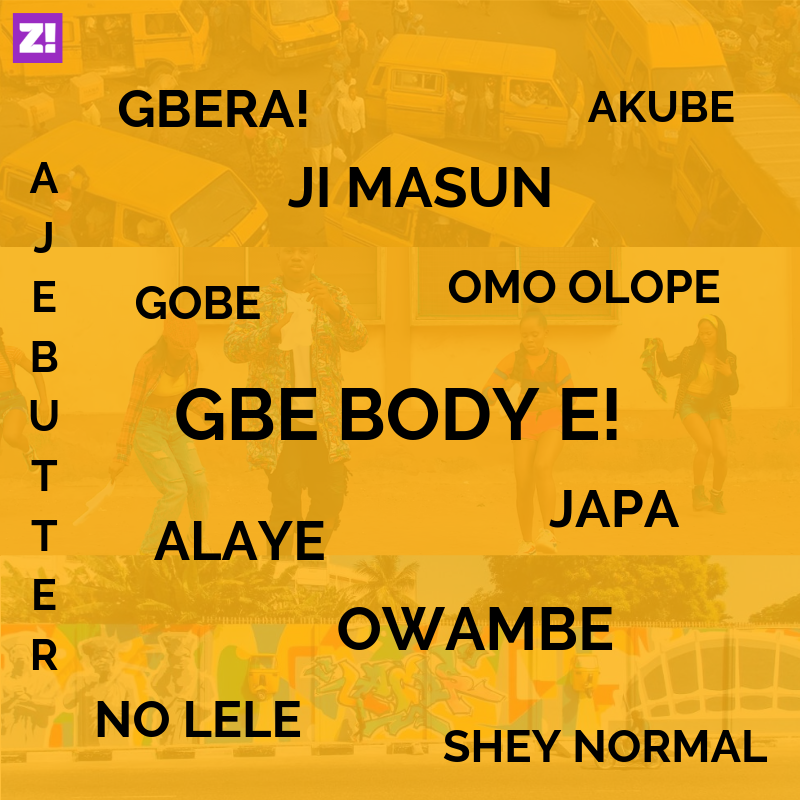
Slang is good. I can’t even begin to run through the reasons. For a start, it gives attitude to language.
Slang makes its speakers feel special like they’re part of some elite group where you have to speak in “Alaye” and “Kurombe” to collect your ID card.
But the thing is most slang is inspired by reality and as you probably know, Nigerian reality is an endless episode of Ridiculousness.
Take the slang, “Gbe Body E” for instance.
Most people use it to elicit some form of excitement or get people moving. You’ll hear it at parties when someone busts out a mean Zanku, or some wealthy bottle popper shows up.
Which is weird because the slang supposedly began in brothels in Mushin and Agege. The story goes that err, sex workers and strippers would tell their exhausted patrons to gbe body (carry their bodies) after they had been worn out by exercise.
It’s like going to the gym and your trainer works you the hell out. Then just as you break your ankle, he looks at your body on the ground and tells you to crawl home with the weights on your back.
One of my personal favourites is Ajebutter.

Everyone knows it refers to kids born with a silver spoon, right?
The literal meaning though is ‘someone who eats butter’. Join me as I try to understand why anyone thinks eating butter, which I assume people only do because there’s bread at home and payday is exactly 23 days away, is a symbol of wealth.
What does all of this mean?
Most Nigerian slang comes from street culture, a way of life that is challenging and absurd.
It’s not fancy but street culture is what most Nigerians experience on their day to day. Nothing captures our collective reality quite like the slangs that rise out of Karu, Agege or Upper Sakponba.
So the next time you tell the alaye (young man) manning your danfo (commercial bus) to give you your waso (50 naira) change, remember you’re spreading tiny bits of Nigerian ridiculousness in the air. You should be proud.
Oh. And Zlatan’s ‘Kapaichumarimarichopaco’ comes from a popular late-2000s skit where a young man desperate for quick, easy money was beaten by two conmen pretending to be native spiritualists.
What could be more ridiculous than that?
Did you enjoy this? You should sign up for our weekly pop culture newsletter, Poppin’. You’ll get to know what we’re up to before anyone else + insider gist, reviews, freebies and more. If it sounds like your deal, sign up here.

